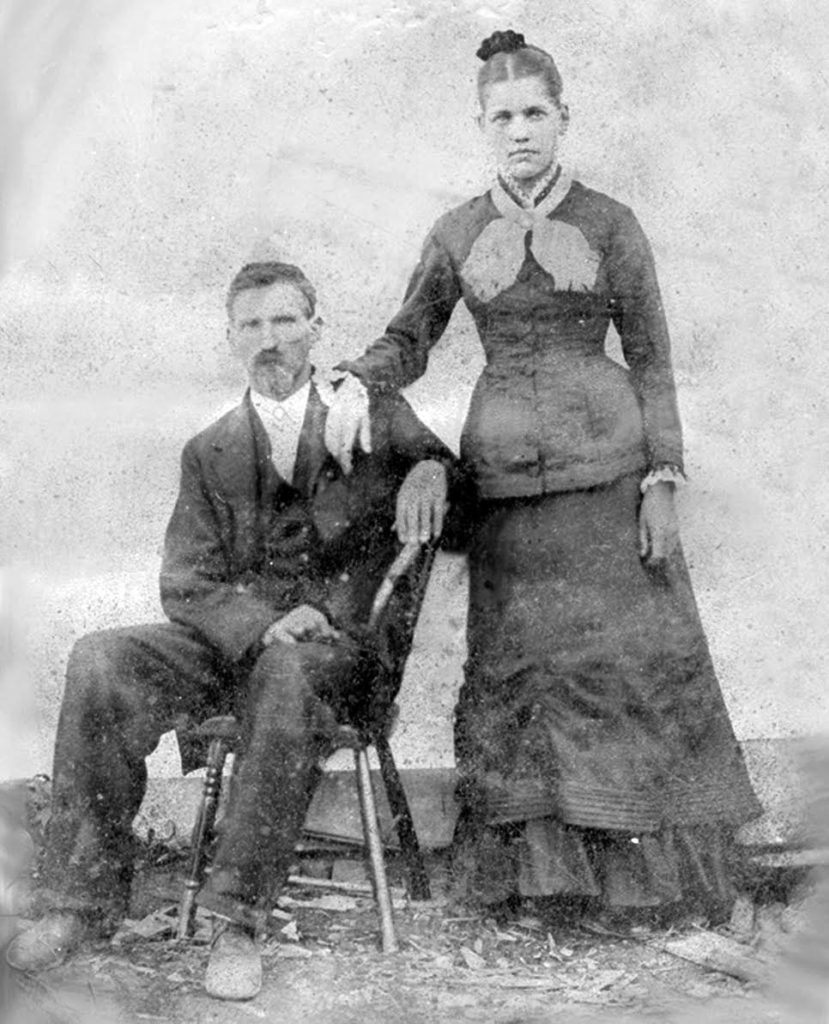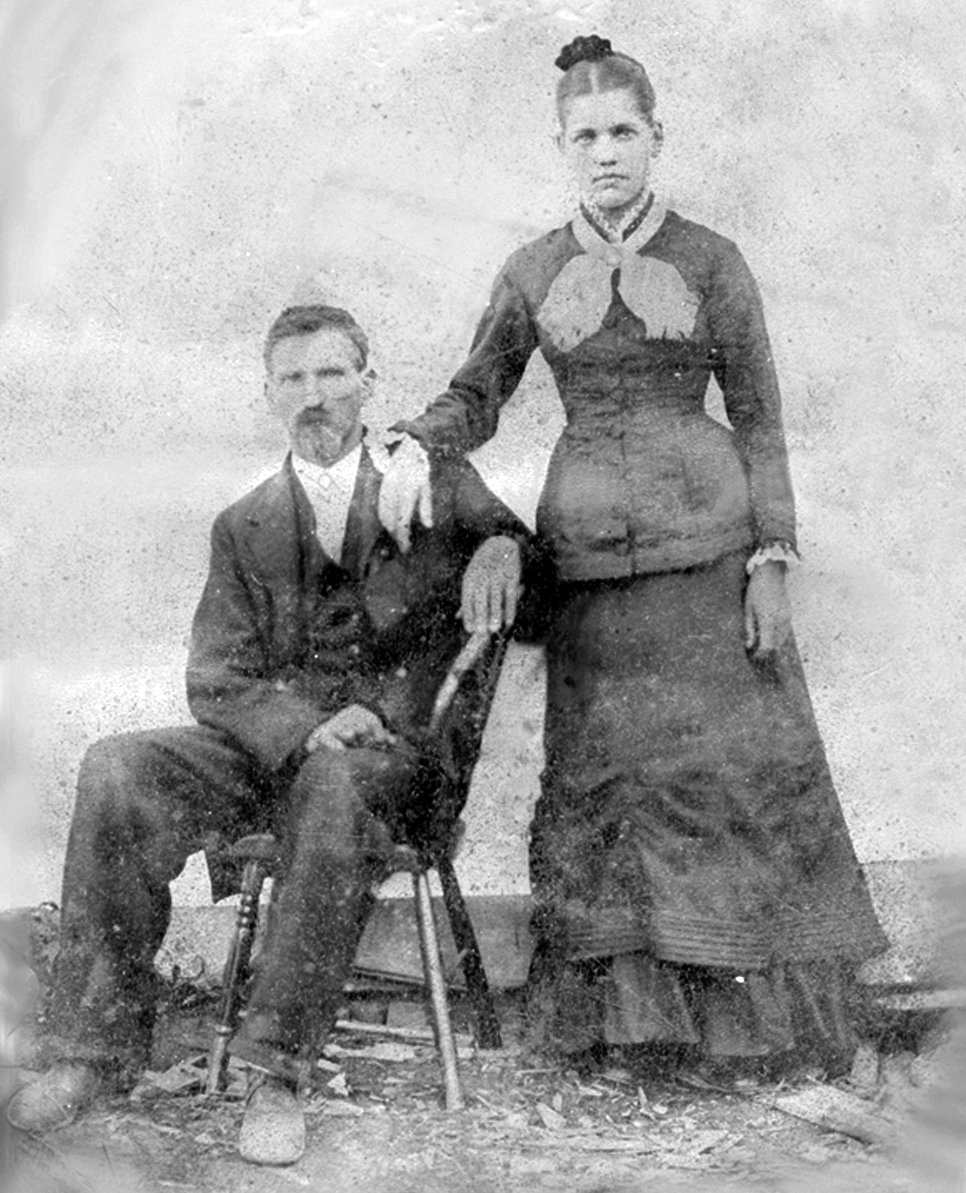“Mammaw Hite” – 1856-1941

Alice Hite was my great-grandmother, my father’s maternal grandmother, born in 1856. I knew her. To me — a young child — she was the literal definition of ancient. She died in April 1941, when I was 9 years old.
Her husband, several years older than she, was William Hite, a veteran of the Civil War. When Mammaw died — I was at her funeral along with other family, including my sister Alice — we were at the cemetery and I recall her casket, before it was lowered, was draped with a Confederate flag, for she had been the last Civil War widow in West Virginia. You’ll note that she married young, and as noted in the photograph, her husband was considerably older.
Mammaw was more than a matriarch. She ruled the household — that household being the homeplace of my father Willis Farley and his siblings and parents. She was tall, straight-backed, and stern, with piercing eyes and little humor. I don’t remember her voice at all — in her final years she suffered from a stroke and was for the most part without speech.
When Alice and I were quite young we spent summers at that homeplace — in Alderson, West Virginia, a small town on the beautiful Greenbrier River whose chief employers were the Federal Women’s Prison and the State Prison for Women. That’s how I came to know Mammaw. I don’t remember her as having much affection for young children — our interactions were mostly at the dinner table. But I’ll say this: she was someone you wouldn’t forget. At the risk of being too aggressive in my assessment, she was, simply, overbearing, unforgiving, and probably unhappy with the way her life turned out: alone, and although respected, not loved by many.

With that, I note that I’ll be very candid in these pages. Mammaw was, to Alice and me, an unforgiving, stiff old woman who had little happiness in her life.
Lest I judge her too harshly, it occurs to me that she was a woman of the nineteenth century; a time when many women were considered “property,” without rights, and expected to serve the man of the house. Remember, she married a much older man; a Civil War veteran hardened by that experience, and probably harsh and demanding in his own way of his young wife.
Reflecting that, it is no wonder that she was less than cheerful, less than outgoing. Perhaps that’s why she became the ruler of the roost in ways that she could achieve without “breaking the rules” of what was expected of women of that time. I can’t imagine what it was like for most women of that day, and there is a lot to excuse them for — Mammaw included.








You must log in to post a comment.